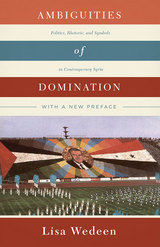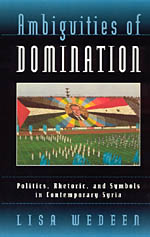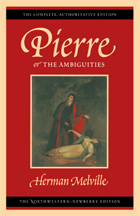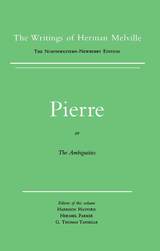
Wedeen shows how such flagrantly fictitious claims were able to produce a politics of public dissimulation in which citizens acted as if they revered the leader. By inundating daily life with tired symbolism, the regime exercised a subtle, yet effective form of power. The cult worked to enforce obedience, induce complicity, isolate Syrians from one another, and set guidelines for public speech and behavior. Wedeen‘s ethnographic research demonstrates how Syrians recognized the disciplinary aspects of the cult and sought to undermine them. In a new preface, Wedeen discusses the uprising against the Syrian regime that began in 2011 and questions the usefulness of the concept of legitimacy in trying to analyze and understand authoritarian regimes.

Wedeen concludes that Asad's cult acts as a disciplinary device, generating a politics of public dissimulation in which citizens act as if they revered their leader. By inundating daily life with tired symbolism, the regime exercises a subtle, yet effective form of power. The cult works to enforce obedience, induce complicity, isolate Syrians from one another, and set guidelines for public speech and behavior. Wedeen's ethnographic research demonstrates how Syrians recognize the disciplinary aspects of the cult and seek to undermine them. Provocative and original, Ambiguities of Domination is a significant contribution to comparative politics, political theory, and cultural studies.

Until 1860 John Ruskin's writings were primarily about art and architecture; but his belief that good art can flourish only in a society that is sound and healthy led him inevitably to a preoccupation with social and economic problems, the dominant concern of his later writings. James Clark Sherburne provides in this volume a detailed and long overdue re-examination of Ruskin's social and economic perceptions and, for the first time, systematically places these perceptions in their nineteenth-century intellectual context.
Ruskin's eloquence and the strength of his moral, aesthetic, and social convictions established him as one of the most influential of Victorian writers. His writings, however, are not easily categorized and many of his important insights occur as digressions in discussions of other topics. Mr. Sherburne succeeds in ordering and clarifying the rich chaos of Ruskin's social thought without denying that wholeness which is, paradoxically, its salient feature. He discovers the source of Ruskin's social criticism in his early writings. He then follows Ruskin's interest as it shifts from economic theory to the problems of exploitation, war, imperialism, the means of social reform, and the construction of the welfare state.
Ruskin's remarkably early vision of the possibility of economic abundance, his anticipation of its social and personal implications, his much disparaged critique of classical economics, his pioneering attention to the role of the consumer and the quality of consumption, his anxious portrayal of the effects of industrialism on the environment, his critique of English educational methods, and his farsighted proposals for public management of industry and transport are among the many aspects of Ruskin's thought examined by Mr. Sherburne. What emerges is an original and exhaustive study of a dimension of Ruskin's work which, though much neglected, is particularly relevant to contemporary concerns.

When Pierre Glendinning's lifelong desire for a sister is seemingly realized on the eve of his marriage, his world is suddenly turned upside down, for he must choose between acknowledging his illegitimate half-sister or perpetuating his unsullied family legacy. Melville unfolds the story of an idealistic young man whose steadfast beliefs lead him to destroy his world and himself.

This scholarly edition aims to present a text as close to the author's intention as the surviving evidence permits. Based on collations of the two issues and the two impressions of the single edition publishing in Melville's lifetime, it incorporates necessary emendations made by the series editors. This text of Pierre is an Approved Text of the Center for Editions of American Authors (Modern Language Association of America).
READERS
Browse our collection.
PUBLISHERS
See BiblioVault's publisher services.
STUDENT SERVICES
Files for college accessibility offices.
UChicago Accessibility Resources
home | accessibility | search | about | contact us
BiblioVault ® 2001 - 2024
The University of Chicago Press









